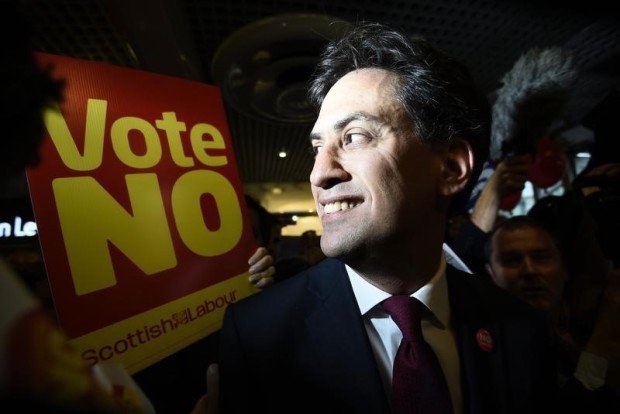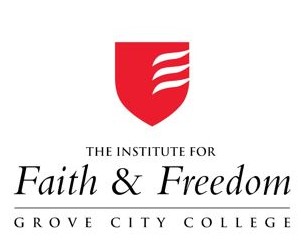Scottish Independence, GOP Hopes and Fear Trumping Faith

This column originally appeared at TruthRevolt.org on September 16, 2014.
—
This Thursday’s vote on Scottish independence, with its see-saw polling, sharply divided electorate and unpredictable outcome, in many ways mirrors the upcoming Congressional elections in the United States. In fact, Republicans hoping to take control of the US Senate could learn some crucial lessons from the epic battle currently raging across-the-pond.
The most important take-away concerns the sudden shifts and unexpected reverses that characterize today’s media driven politics. At the time that the British Parliament authorized the Scottish vote in November of last year, and for at least seven months thereafter, conventional wisdom gave the Scottish nationalists scant hope of dissolving the union of Scotland and England that had prevailed for 307 years. A month before the balloting, however, public opinion began to shift and the independence forces gained massive momentum, running ahead in prominent polls with just two weeks left before the vote. In the last few days, public opinion seemed to reverse itself again and all polls showed gains for the “Better Together” campaigners who wanted to preserve the United Kingdom. Some seventy-two hours before referendum day, confident prognostication seems profoundly dangerous, especially with all polls showing a relatively high number of undecided voters.
The guess about those uncertain Scots who still haven’t yet made up their minds would be that they will tilt the outcome toward the “No” column and allow unionists to celebrate the preservation of Albion’s “Land of Hope and Glory.” A voter who remains uncertain just days before the election will in most cases avoid so radical a step as proclaiming independence and shattering one of the world’s great powers.
An iron rule of politics stipulates that it’s always easier to motivate people to vote against what they fear than it is to inspire them to vote for what they want. That’s especially true today, with the worldwide cynicism about government and its ability to solve problems or salve pain. In this context, those urging a “no” vote on Scottish independent sound far more credible in their closing arguments than the emotional and irrational arguments for a “yes.” It’s easy to imagine profoundly negative consequences if the Scots try to go it alone for the first time in more than three centuries, with major banks promising to relocate to the more business-friendly climate of England and an unsettled question of which currency the new nation could use or create. On the other hand, the promised gains from independence involve such tough-to-define factors as national pride and emotional satisfaction. The bad consequences, in other words, are far easier to visualize, let alone quantify, than any sentimental rewards.
Many Scots may dislike their English neighbors and resent their homeland’s powerless status as a quaint, thinly-populated province in a mighty nation of 62 million, but at least they know what to expect if they vote to continue the association. Independence, on the other hand, offers a brace of uncomfortable questions and no certainties at all, promising more trouble and insecurity in the midst of already troubling and insecure times. The safe bet suggests that most of the last-minute deciders in a close, bitter race will instinctively gravitate toward the less risky choice.
By the same token, most Americans disapprove of the direction of the country and agree with the idea that divided government in Washington has become an international embarrassment, but they also feel confident that if they re-elect the same people to positions of power at least the mess will look familiar. At the opening stages of the campaign, leading pundits predicted that the inertia of a risk-averse electorate would protect nearly all incumbents and preserve the Democrats’ thin majority in the Senate. That changed as Obama’s approval ratings collapsed and the public began expressing an unexpectedly intense desire for reform; most projections suddenly showed the GOP easily grabbing the six Senate seats they need to establish Republican control.
But the average voter has no idea what the GOP means to do with that control when- and if- they win it, and that has allowed Democrats to sketch the most dire imaginable consequences that would flow like a toxic river after any Republican takeover. When Nancy Pelosi told Bill Maher that a GOP Senate would mean that “civilization as we know it would be in jeopardy” she didn’t seem to be joking. The closing argument for Democratic Senate candidates appears to be that Obama may count as a disappointment, and the split Congress could be described as deeply dysfunctional, but that any transfer of power to Republicans would mean disaster. Progressive campaigners sketch lurid pictures of more gun deaths, back alley abortions, water pollution, global warming, persecution of immigrants, pointless Middle Eastern wars, tax breaks for millionaires, racism, homophobia, sexism and other horrors. None of this may sound vaguely credible, but skepticism about government in general makes it much easier to expect the worst than to anticipate the best from Uncle Sam. Yes, even Democrats acknowledge that Harry Reid has made a mess of the Senate but if he’s returned to power they can at least anticipate that the mess won’t expand or metastasize.
In this context, with less than fifty days before a major election, the Republicans must show that their agenda is pragmatic and reformist, not ideologically extreme, and that there’s nothing scary about a Congress with both houses under GOP control – especially with Obama hanging on to his presidential power and his veto pen. The best way to convey this message is to prepare a believable, optimistic agenda for the first hundred days of the new Congress, thereby denying Democrats the opportunity to promote their own distorted vision of diabolical GOP goals.
If Scottish independence goes down to defeat on Thursday, it will reflect the fact that it was easier to imagine negative consequences from a dramatic alteration of institutions than it was to visualize positive change. If Republican Senate hopes also manage to crash and burn some eight weeks later, that failure will similarly stem from dimming public hopes that a GOP takeover could clean up the disarray in the nation’s capital and increasing public fear that a dramatic shift could make a bad situation even worse.






















